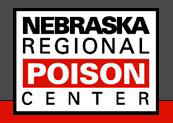 Did you know that a killer could be lurking in your home or car right now? The problem is, this killer can strike without ever being seen, heard or smelled.
Did you know that a killer could be lurking in your home or car right now? The problem is, this killer can strike without ever being seen, heard or smelled.
Each year, carbon monoxide poisoning kills nearly 500 people nationwide and sickens thousands more. The CDC ranked Nebraska as the state with the highest reliable mortality rate from carbon monoxide. In 2008, the Nebraska Regional Poison Center received 214 calls concerning carbon monoxide. In 2009, the center received even more calls.
More troubling is the fact that this figure can be misleading because carbon monoxide poisoning is often unreported. It is imperative that Nebraskans understand the dangers, the symptoms and how to prevent poisoning from carbon monoxide.
Symptoms of carbon monoxide poisoning include:
- Sleepiness;
- Headache;
- Dizziness;
- Blurred vision;
- Nausea;
- Shortness of breath; and
- Convulsions.
The first step to treat carbon monoxide poisoning is to get the victim to fresh air. Then, seek medical attention immediately.
Carbon monoxide is a gas produced when fuels burn incompletely. It has no color, taste or smell. The major causes of carbon monoxide poisoning include:
- Use of heating equipment that is in poor repair;
- Lack of ventilation in a car;
- Use of a charcoal grill indoors; and
- Use of unvented space heaters.
When fresh air is available and fuel is burning properly, there is little danger of carbon monoxide poisoning. However, operating an internal combustion engine or a poorly adjusted fuel-burning appliance in a closed area without proper ventilation can become fatal.
The Nebraska Regional Poison Center offers the following suggestions to help prevent carbon monoxide poisoning:
- Inspect all fuel-burning equipment yearly;
- Vent fuel-burning heaters to the outside;
- Do not use a gas range or an oven for heating a room;
- Never use a charcoal grill or hibachi inside;
- Install carbon monoxide detectors on every level of your house;
- Never leave a car running in an attached garage, even with the garage door open; and
- Have the vehicle muffler and tailpipes checked regularly.